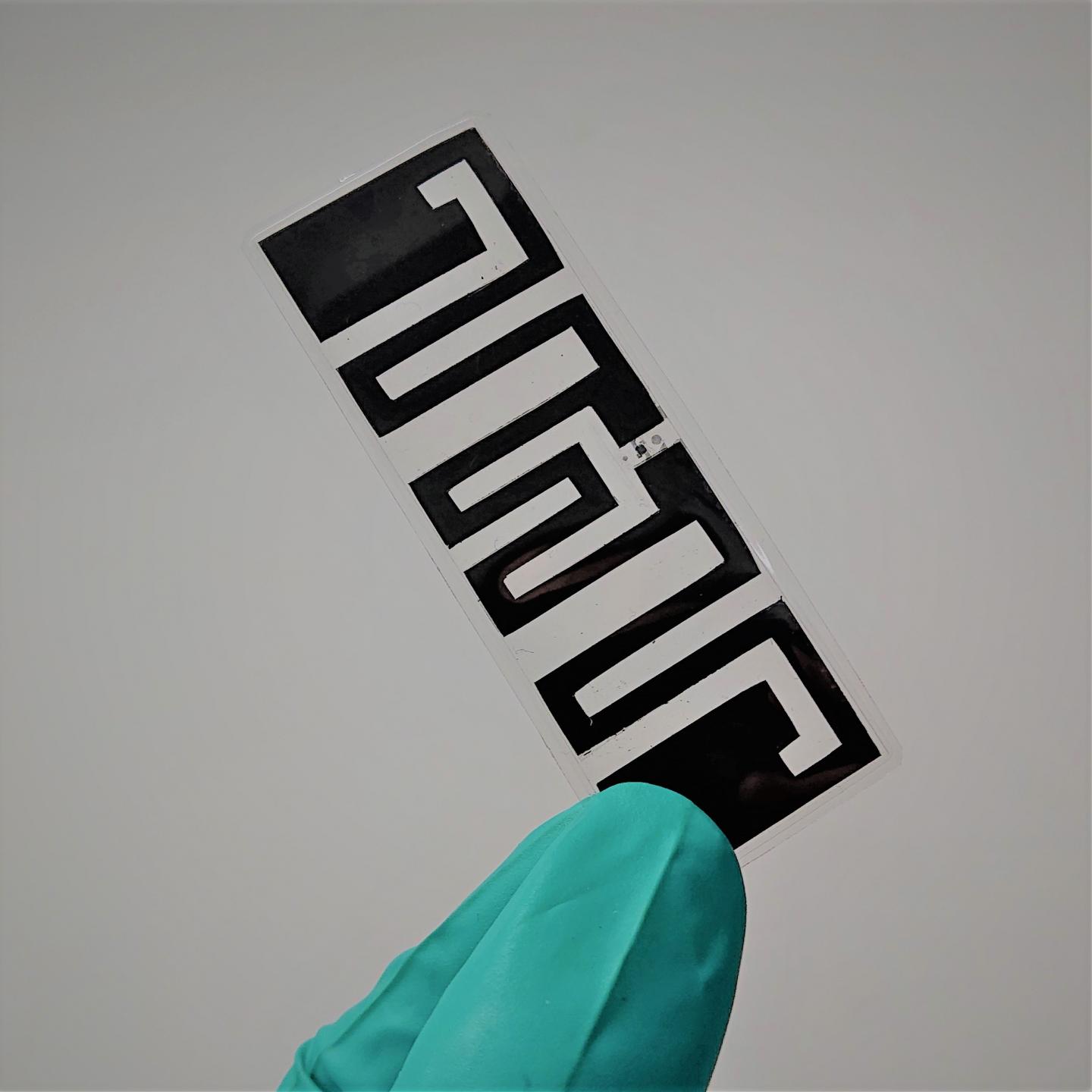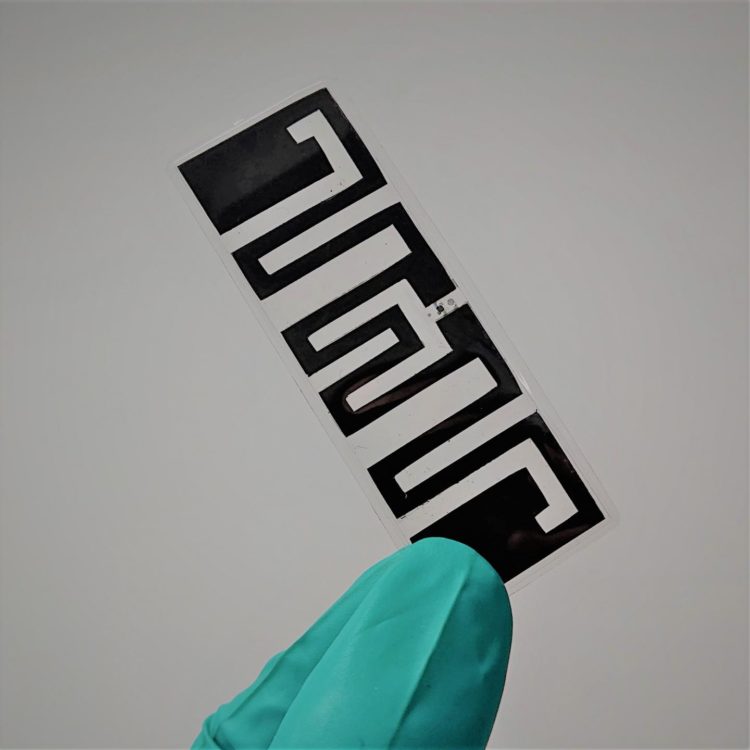
Credit: University of Sussex
As part of the new £8 million ESRC investment in Digital Futures at Work Research Centre, University of Sussex academics and an innovative SME have teamed up with the world’s largest retail company to understand how quantum digital technology could revolutionise employment in the retail sector and significantly reduce metal waste.
University academics and Advanced Material Development (AMD) are working with Quantum Physics researchers, sociologists at the University of Sussex Business School digit centre and Walmart to understand how more environmentally-friendly radio-frequency identification (RFID) tags are developed, implemented and affect employment in the retail sector.
Materials scientist Professor Alan Dalton and his team have created an alternative to metal tags on clothing and food by developing antennas based on graphene inks which can be printed onto paper creating a sustainable solution to an essential part of the retail supply chain.
As part of the project, social sciences and management studies academics from the Digit Centre at the University of Sussex Business School will examine the learning process from product development to implementation and its impact on labour requirements and productivity.
Professor Alan Dalton from the School of Mathematical and Physical Sciences at the University of Sussex said: “The nanotech ink we create in our lab has loads of important, sustainable applications.
“We’re excited that our world-leading research has paved the way for Walmart and other retailers to bin metal-dependent tags and replace them with our much more eco-friendly answer.
“There’s no need now for the old fashioned supermarket tags of the past to populate landfill sites.”
The global RFID market was estimated to be worth US$11bn in 2018, and is predicted to increase to US$13.4bn by 2022.
Graphene-based nanomaterial inks, where the individual components are invisible to the human eye, have been developed as coatings which could replace metals in RFID systems and which can be applied to a range of surfaces using commercial printing techniques such as ink-jet, screen and flexographic.
The capability of the inks are also being expanded through the application of a quantum microscope – developed and constructed by the Sussex Programme for Quantum Research.
John Lee, CEO of AMD, said: “Our work at Sussex in the field of highly conductive inks has partly been driven by demands from the retail industry searching for a sustainable solution in the replacement of metal content in RFID antennas.
“We are continuing to improve our technology for our partners in this space, with a possible large scale print trial this year, and the opportunity to work with a company with the global impact and sustainability reputation of Walmart is a substantial boost and support of the need for us.”
AMD has recently announced a £1.5m equity funding round as the company further extends its nanomaterial research and development operations. It will also support its government and industry partnerships in Europe and the US.
Professor Jackie O’Reilly, Co-Director for the new Digital Futures at Work Research Centre at the University of Sussex Business School, said: “The potential for this technology is huge.
“Implementation of RFID systems can transform supply chain efficiencies for large companies with complex supplier bases and can significantly reduce inventory count time from hundreds to a handful of hours.
“While this is hugely beneficial for companies, there is clearly the potential for huge consequences on employment rates, worker satisfaction and wellbeing that need to be adequately investigated.
“This is a unique opportunity to work with brilliant physics researchers to understand their world and what they create; to understand how these hard core science ideas are exported into the business world; and to understand how these?decisions?affect the way work is constructed and what kinds of jobs people get as a result of major companies adopting these new technologies.”
###
The project, funded via a grant from UK Research and Innovation (UKRI) and the Economic and Social Research Council (ESRC), will start in April 2020 and run for two years.
Media Contact
Stephanie Allen
[email protected]
01-273-873-659





